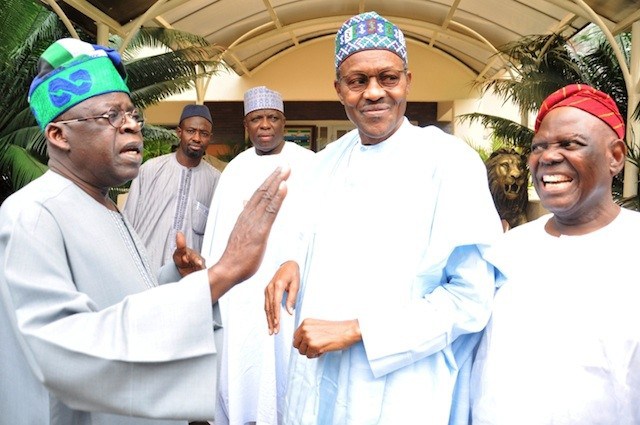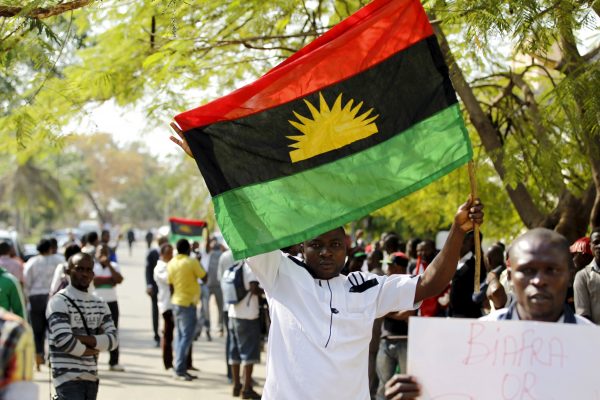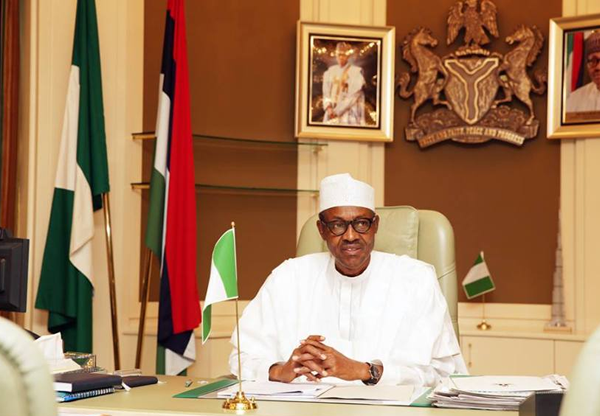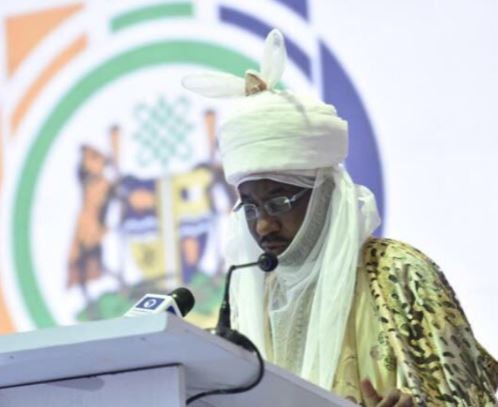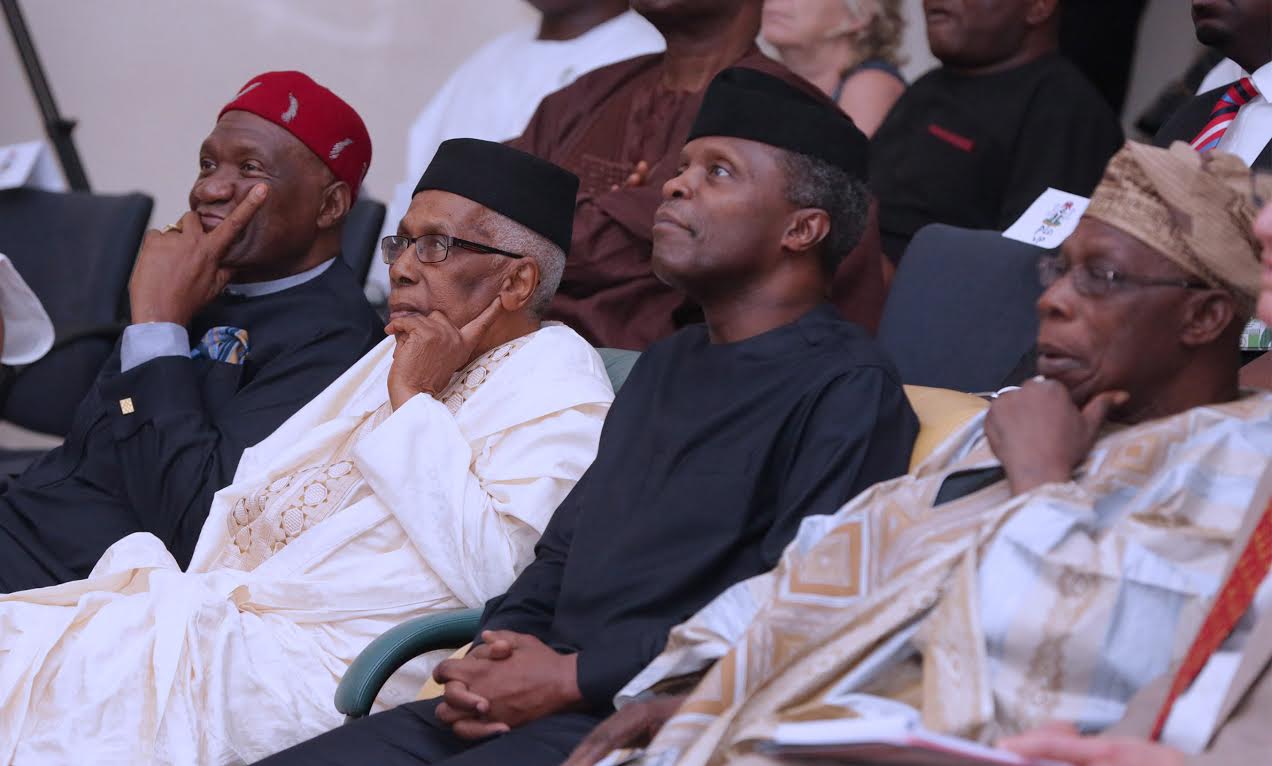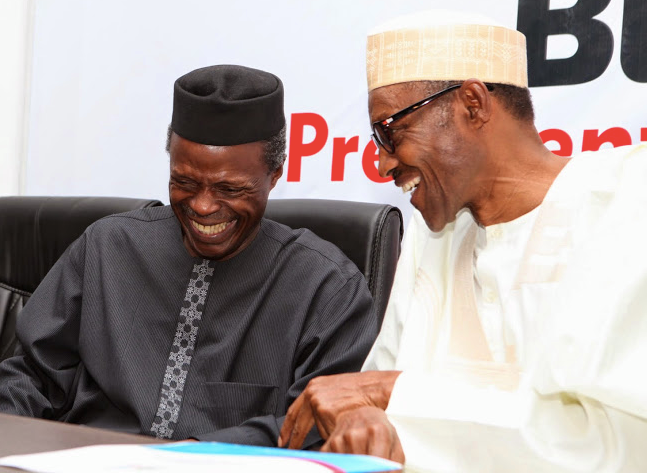Ordinarily the current subtle lines of threat from those who consider themselves to be custodians of the North’s political interest and reigning political lords in Yoruba land should baffle.
Just about three years ago, Asiwaju Bola Tinubu, the same one now who is now subjected to assorted invectives, spearheaded the formation and eventual expansion of the All Progressives Congress into the national phenomenon that would, for the first time in the history of this country, displace an incumbent administration.
We should also recall that the main beneficiary of this association, incumbent President Muhammadu Buhari had failed at each of his three previous bids before 2015. And on all of these failed attempts, Buhari’s major handicap remained his inability to spread the gospel of his ambition and win loyalties from across the country, as is mandatory for anyone who aspires for Nigeria’s Presidency. All that became history when the legacy parties comprising the Congress for Progressive Change, the All Nigeria Peoples Congress, the Action Congress of Nigeria and a splinter of the All Progressives Grand Alliance, came together in February, 2013.
Even Buhari himself conceded to Tinubu’s trail blazing influence on the electoral process when he said, during the former governor’s 65th birthday earlier this year, that Tinubu’s foray into politics “ushered in a better understanding of building consensus to achieve historical feats, like unseating an incumbent government.”
Advertisement
However, ardent students of Nigerian politics should not be surprised at the turn of events at all. Just as it would be astonishing, even disappointing, if Tinubu and his followers were caught napping by the reversal of their status from beautiful brideship to villainy, deserving of unending name calling in this short space of time.
I say so because Nigeria’s political history shows that power is a communal venture when it rests with anyone from the northern part of the country. Unlike southern Nigeria, which is divided by selfish, personal and regional interests, it is often easy for the North to see itself as a homogenous entity when it concerns the acquisition and retention of power. They leave no one in doubt about this.
Two years ahead of the 2015 elections for instance, the North, speaking mostly through the Prof. Ango Abdullahi-led Northern Elders Forum, had put the nation on notice that nothing but a northern president would cut the mustard in 2015. This mood that the North boldly ventilated to and the apparent desire of progressive elements from the South-West to participate in a national government congregated in the force that brought Buhari to power.
Advertisement
But, having attained power, the dynamics change as far as northern Nigeria is concerned. It always does and any collaborator that does not reassess its position and expectations, would most likely jeopardise its own interest.
I speculated as much in an article titled, ‘Why the Yoruba may lose out under Buhari’, published on May 14, 2015. In the said article, I wrote inter alia: “… The South-West might soon find itself fishing in troubled waters. Yoruba politicians may be smart and strategic, but power is an industry for the North. This is why it sought after Nigeria’s presidency with passionate doggedness for years and now that it is in the kitty, they will come against anyone who denies them the opportunity to totally own the President and his administration. With my understanding of Nigerian politics, politicians from the North are most adept at the deployment of power when one of their own gets into office…Anyone in doubt of this should check the political history of Nigeria and see the deal that late eminent Kwara politician, Dr Olusola Saraki and late business mogul and politician, Dr Moshood Abiola got from the North in the Second Republic…” One can say with a measure of certainty now that water has found its level.
But that is only as far as the tenure ending in 2019 is concerned. You will notice that even as Tinubu has recently solicited prayers for Buhari to get well and return to office soon, the NEF is already projecting for 2019.
In a statement last week, Abdullahi said, amongst other things: “…But, no one is in a position to know at what point he is going to recover fully and come back to office or whether the unexpected could happen. The northern elders insist that Osinbajo cannot replace Buhari in 2019.” That is the vintage northern Nigerian leader: practical, unsentimental and without the unnecessary diplomacy, sometimes doublespeak of his Yoruba counterpart.
Advertisement
Generally, however, our political leaders need to begin to direct their attention towards more useful issues than the origin of the President. It does not do well for the unity and progress of the country as our near six decade history has shown.
For instance, in 56 years of the country’s independence, the North has governed for 39 years! Yet, the common man in the North has nothing to show for it except for grinding poverty and abject lack of opportunities.
Courtesy of northern Nigeria, this country has the highest number of out-of-school children in the world. This means that the North is not just lagging behind, it is not preparing for the future. Poverty is highest in the North-West and North-East of the country with rates put at the average of 80.9 per cent and 76.8 per cent, respectively.
The condition of the woman in northern Nigeria is one of the worst in the world. It starts with lack of education, followed by early marriage cum pregnancy and the lack of adequate medical attention, which could lead to anything from lifelong deformation to maternal and infant death. Women and children are subjected to incredible traditional practices, which detract from the quality of life. No one has recently amplified this situation better than the duo of the Sultan of Sokoto, His Eminence Muhammadu Sa’ad Abubakar III and the Emir of Kano, Muhammadu Sanusi II.
Advertisement
We can also raise questions about how much fortune former President Obasanjo’s two-time leadership brought to his people in the South-West. The state that he left the Lagos-Ibadan Expressway and the Lagos/Abeokuta Expressway, which leads to his Ota home, when he left office in 2007 amply told of his impact.
Obasanjo’s presidency did not change the fortunes of that 70 year-old farmer whose weak legs trek hours to get to his farm daily; nor did it better the lot of that vulnerable orphan on the streets of Lagos or Abeokuta.
Advertisement
When former President Goodluck Jonathan left office, the people of Otuoke, his hometown in Bayelsa State did not even have potable water. Did he do much to stop the environmental degradation in the area or reduce the incidence of maternal, newborn and child death? Did malaria stop killing people? Did the Niger-Delta get world-class roads simply because a son of the soil became President for the first time? Governor Seriake Dickson drove the point home last week when he said that Jonathan’s five years were a waste to the Ijaw nation, to which both of them belong.
In effect, no part of the country has benefitted in any manifest way from having an indigene in that high office of President. It only just satisfies the egos of the political leaders without any benefit to the common man.
Advertisement
Our leaders still embark on medical tourism to the United Kingdom, the United States and India for the most basic of ailments while the majority of our people are uncared for. From Yenogoa to Abeokuta down to Enugu and Kafancha, poverty has become a robe in which people sleep, wake, walk the streets and sleep again. Lack of opportunities have killed the dreams and ingenuity of the average Nigerian, yet our leaders bicker over things that have no bearing on our lives.
Follow me on twitter @niranadedokun
Advertisement
Views expressed by contributors are strictly personal and not of TheCable.
Add a comment

